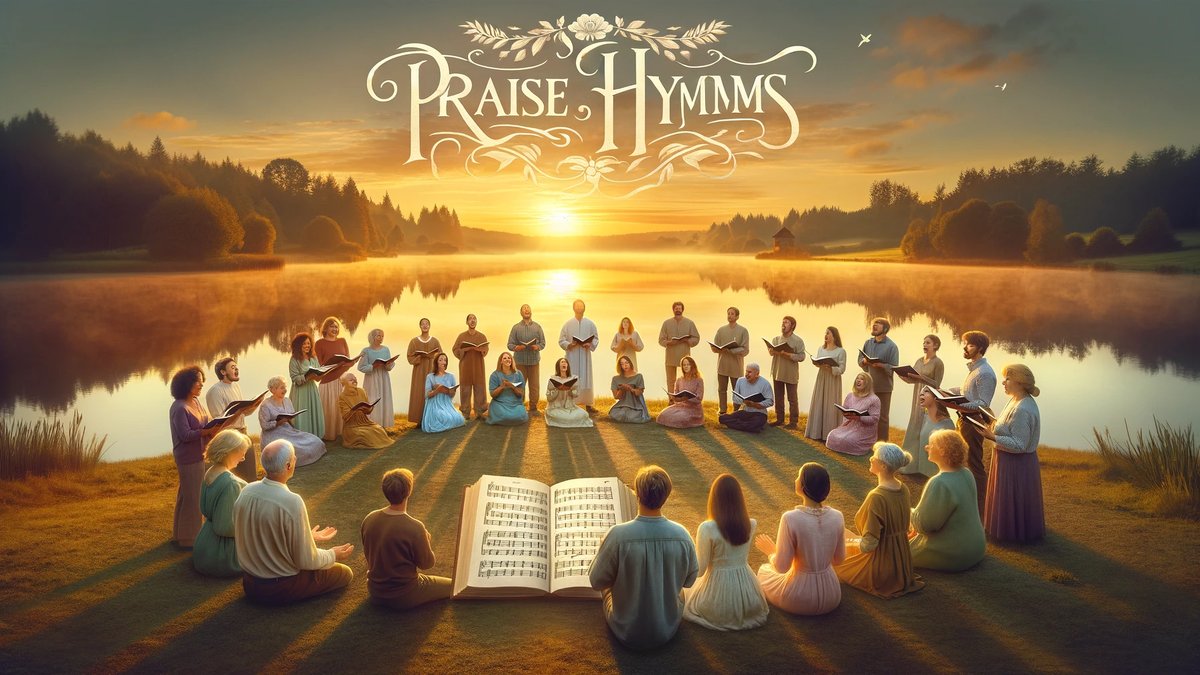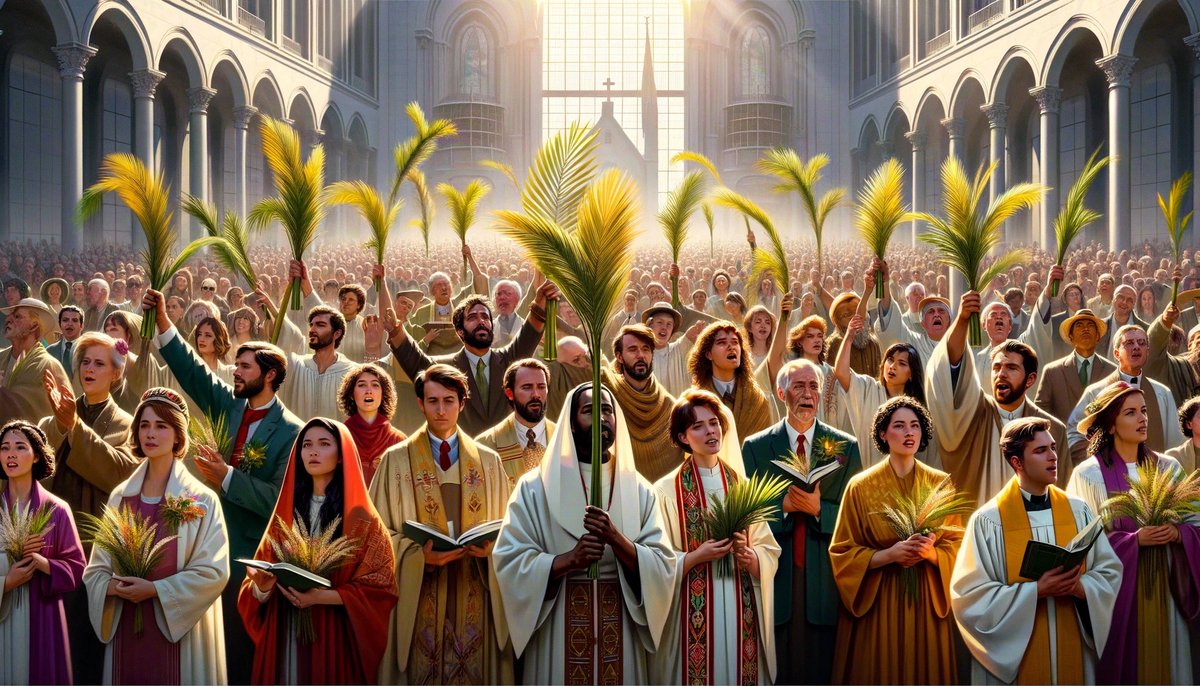Home>Special Themes>What Are Advent Hymns


Special Themes
What Are Advent Hymns
Published: February 12, 2024
Peter Smith, Editorial Director at Christian.net, combines deep insights into faith, politics, and culture to lead content creation that resonates widely. Awarded for his contributions to religious discourse, he previously headed a major organization for religious communicators, enhancing dialogue on faith's societal impacts.
Discover the significance of Advent hymns and their role in the special themes of the Advent season. Explore the rich history and meaning behind these cherished musical traditions.
(Many of the links in this article redirect to a specific reviewed product. Your purchase of these products through affiliate links helps to generate commission for Christian.net, at no extra cost. Learn more)
Table of Contents
Introduction
Advent hymns are an integral part of the Christian tradition, especially during the Advent season leading up to Christmas. These hymns hold a special place in the hearts of believers, as they capture the essence of anticipation, hope, and spiritual preparation for the celebration of the birth of Jesus Christ. The rich history and profound significance of Advent hymns have contributed to their enduring popularity and widespread use in churches and religious gatherings around the world.
The melodies and lyrics of Advent hymns resonate with the faithful, evoking a sense of reverence and joy as they reflect on the miraculous events surrounding the Nativity. These hymns serve as a musical and lyrical journey through the biblical narrative, inviting worshippers to immerse themselves in the timeless story of the Messiah's arrival. As the Advent season unfolds, these hymns create a sacred atmosphere, fostering a deep connection to the spiritual heritage and the profound meaning of Christmas.
Throughout the centuries, Advent hymns have transcended cultural and linguistic boundaries, uniting believers in a shared expression of faith and devotion. Whether sung in grand cathedrals, humble chapels, or intimate home gatherings, these hymns carry the universal message of hope and salvation, resonating with people from diverse backgrounds and traditions. Their enduring appeal lies in their ability to kindle the spirit of anticipation and renewal, infusing the hearts of worshippers with a sense of awe and gratitude for the divine gift of Christ's birth.
As we delve into the history, purpose, common themes, and examples of Advent hymns, we embark on a journey that illuminates the profound significance of these timeless musical treasures. Through this exploration, we gain a deeper understanding of the spiritual tapestry woven by Advent hymns, enriching our appreciation for the season of anticipation and the joyous celebration of Christmas.
Read more: What Are Hymns
The History of Advent Hymns
The history of Advent hymns can be traced back to the early centuries of Christianity, where the tradition of singing hymns during the Advent season began to take shape. The word "Advent" itself is derived from the Latin word "adventus," meaning "coming" or "arrival," and it signifies the period of expectant waiting and preparation for the celebration of the birth of Jesus Christ.
During the early development of Christian liturgy, the use of hymns became an integral part of worship, serving as a means of expressing faith, devotion, and anticipation. The early Christian hymns, including those specifically composed for the Advent season, reflected the theological and spiritual significance of the Incarnation, emphasizing the profound belief in the fulfillment of divine promises through the birth of Jesus.
As the Christian church evolved and expanded, the tradition of composing and singing Advent hymns continued to flourish, with notable contributions from renowned hymnists and composers. The medieval period witnessed the emergence of iconic Advent hymns, such as "O Come, O Come, Emmanuel," which exemplified the deep longing for the Messiah's arrival and the fervent anticipation of the fulfillment of ancient prophecies.
The Protestant Reformation further enriched the repertoire of Advent hymns, as reformers and theologians emphasized congregational singing as a vital aspect of worship. This emphasis led to the creation of hymnals containing a wealth of Advent hymns, enabling worshippers to actively participate in the musical expression of their faith during the Advent season.
The evolution of Advent hymns continued into the modern era, with hymnists and composers from diverse denominational backgrounds contributing to the treasury of Advent music. The themes of hope, longing, joy, and redemption permeate these hymns, reflecting the enduring relevance of the Advent season in the hearts and minds of believers across the globe.
Today, the history of Advent hymns stands as a testament to the enduring power of music to convey the timeless truths of the Christian faith. These hymns serve as a bridge connecting the faithful to the rich tapestry of tradition, theology, and spirituality, inviting them to participate in the collective journey of anticipation and celebration during the Advent season.
The Purpose of Advent Hymns
Advent hymns serve a multifaceted purpose that extends beyond mere musical expression. At the core of their significance lies the profound intention to evoke a sense of spiritual contemplation, anticipation, and reverence as believers embark on the journey of Advent. These hymns are intricately woven into the fabric of the Advent season, fulfilling several essential purposes that enrich the worship experience and deepen the spiritual connection to the Nativity narrative.
1. Expressing Anticipation and Hope
Advent hymns encapsulate the collective longing and anticipation for the arrival of the Messiah, echoing the sentiments of ancient prophecies and the yearning of generations for the fulfillment of divine promises. Through poignant lyrics and melodies, these hymns convey a sense of hopeful expectation, inviting worshippers to immerse themselves in the timeless narrative of the Incarnation and the joyous anticipation of Christ's birth.
2. Fostering Spiritual Preparation
The lyrical content of Advent hymns serves as a catalyst for spiritual introspection and preparation, prompting believers to reflect on the significance of the Advent season in their personal faith journey. As the hymns resound with themes of repentance, renewal, and readiness, they inspire a spirit of introspective contemplation, nurturing a sense of spiritual preparedness for the celebration of Christmas.
Read more: What Is A Lutheran Hymn
3. Connecting to the Biblical Narrative
Advent hymns intricately weave the threads of the biblical narrative into their lyrical tapestry, enabling worshippers to connect deeply with the profound events leading up to the Nativity. By recounting the prophecies, the annunciation, and the anticipation of the Messiah's birth, these hymns offer a poignant retelling of the biblical story, fostering a profound connection to the foundational truths of the Christian faith.
4. Uniting the Faith Community
Through congregational singing and communal expression, Advent hymns unite the faith community in a shared journey of faith, anticipation, and celebration. As believers join their voices in harmony, these hymns create a collective experience that transcends individual worship, fostering a sense of unity, fellowship, and shared devotion to the central themes of Advent.
5. Cultivating a Sacred Atmosphere
The melodies and harmonies of Advent hymns infuse the worship space with a sacred atmosphere, elevating the spiritual ambiance and creating a reverent setting for the commemoration of the Advent season. Through their evocative musical arrangements, these hymns contribute to the creation of a sacred space where worshippers can encounter the transcendent beauty of the Nativity narrative.
In essence, the purpose of Advent hymns encompasses a rich tapestry of spiritual, communal, and theological significance, inviting believers to embark on a transformative journey of anticipation, preparation, and celebration as they immerse themselves in the timeless melodies and profound lyrics of these cherished hymns.
Common Themes in Advent Hymns
Advent hymns resonate with a myriad of timeless themes that encapsulate the essence of the Advent season, enriching the worship experience and deepening the spiritual connection to the Nativity narrative. These themes, intricately woven into the lyrical tapestry of Advent hymns, evoke a profound sense of anticipation, hope, and reverence as believers embark on the journey of Advent.
Read more: What Are Shaker Hymns
1. Anticipation and Longing
The theme of anticipation permeates Advent hymns, reflecting the collective longing for the arrival of the Messiah. Through poignant lyrics and evocative melodies, these hymns convey the deep yearning of generations for the fulfillment of ancient prophecies, inviting worshippers to immerse themselves in the timeless narrative of the Incarnation and the joyous anticipation of Christ's birth.
2. Hope and Redemption
Hope and redemption stand as central themes in Advent hymns, echoing the profound belief in the fulfillment of divine promises through the birth of Jesus. These hymns resound with messages of hope, proclaiming the arrival of the long-awaited Savior and the promise of redemption for humanity, infusing the hearts of worshippers with a sense of profound joy and gratitude.
3. Preparation and Renewal
Advent hymns inspire a spirit of introspective contemplation, nurturing a sense of spiritual preparedness for the celebration of Christmas. Through their lyrical content, these hymns prompt believers to reflect on the significance of the Advent season in their personal faith journey, fostering a spirit of repentance, renewal, and readiness for the arrival of the Messiah.
4. Prophecy and Fulfillment
The hymns intricately weave the threads of biblical prophecy into their lyrical tapestry, enabling worshippers to connect deeply with the profound events leading up to the Nativity. By recounting the prophecies, the annunciation, and the anticipation of the Messiah's birth, these hymns offer a poignant retelling of the biblical story, fostering a profound connection to the foundational truths of the Christian faith.
Read more: What Are Traditional Hymns?
5. Joy and Celebration
Amidst the themes of anticipation and preparation, Advent hymns also resound with messages of joy and celebration, heralding the arrival of the long-awaited Messiah. These hymns evoke a sense of exultant joy, inviting believers to rejoice in the miraculous events surrounding the Nativity and to celebrate the profound significance of Christ's birth.
In essence, the common themes in Advent hymns form a rich tapestry of spiritual, theological, and emotional significance, inviting believers to immerse themselves in the timeless melodies and profound lyrics of these cherished hymns, fostering a deep connection to the foundational truths of the Christian faith.
Examples of Advent Hymns
-
"O Come, O Come, Emmanuel"
This iconic Advent hymn dates back to the 8th century and is rooted in the ancient monastic tradition of antiphonal chants. The hauntingly beautiful melody and evocative lyrics capture the profound longing for the arrival of the Messiah, echoing the sentiments of ancient prophecies and the fervent anticipation of the fulfillment of divine promises. Each verse of the hymn reflects a different Old Testament prophecy, weaving a rich tapestry of biblical imagery and theological significance. "O Come, O Come, Emmanuel" stands as a timeless anthem of hope and expectation, inviting worshippers to immerse themselves in the poignant narrative of the Advent season. -
"Come, Thou Long Expected Jesus"
Written by Charles Wesley in the 18th century, this beloved Advent hymn resonates with themes of anticipation, redemption, and spiritual renewal. The hymn eloquently expresses the collective yearning for the arrival of the Savior, heralding the fulfillment of ancient prophecies and the promise of salvation for humanity. Through its stirring lyrics and melodic richness, "Come, Thou Long Expected Jesus" invites worshippers to embrace the profound significance of the Advent season, fostering a spirit of hopeful expectation and joyful anticipation. -
"Lo, How a Rose E'er Blooming"
With roots in German hymnody, "Lo, How a Rose E'er Blooming" exudes a sense of mystical beauty and profound reverence. The hymn poetically portrays the miraculous birth of Jesus as the blossoming of a divine rose, symbolizing the fulfillment of God's promise to humanity. Its exquisite imagery and emotive melody evoke a sense of awe and wonder, inviting worshippers to contemplate the profound mystery of the Incarnation and to rejoice in the arrival of the long-awaited Messiah. -
"Come, Thou Redeemer of the Earth"
This ancient Latin hymn, translated into English by John Mason Neale, captures the essence of Advent with its fervent plea for the Redeemer to come and bring salvation to the world. The hymn's lyrical depth and melodic richness convey a profound sense of longing and anticipation, echoing the universal yearning for the arrival of the Savior. "Come, Thou Redeemer of the Earth" stands as a timeless testament to the enduring hope and joy embodied in the Advent season, inspiring worshippers to embrace the transformative promise of Christ's birth. -
"Savior of the Nations, Come"
Dating back to the 4th century, this hymn, attributed to St. Ambrose of Milan, resonates with themes of prophecy, redemption, and the universal significance of Christ's birth. Its lyrical richness and theological depth convey a sense of profound anticipation and joy, heralding the arrival of the Savior to fulfill the divine plan of salvation. "Savior of the Nations, Come" invites worshippers to immerse themselves in the timeless narrative of the Advent season, embracing the promise of redemption and the transformative power of Christ's birth.
In summary, these examples of Advent hymns stand as timeless expressions of faith, hope, and joyful anticipation, inviting believers to embark on a transformative journey of spiritual contemplation and celebration during the Advent season.
Conclusion
In conclusion, Advent hymns embody the timeless spirit of anticipation, hope, and spiritual preparation that define the Advent season. Through their rich history, profound purpose, and evocative themes, these hymns have woven a tapestry of faith, tradition, and communal celebration, uniting believers in a shared journey of anticipation and joyous expectation.
The history of Advent hymns reflects the enduring legacy of musical and lyrical expressions of faith, dating back to the early centuries of Christianity. From the ancient monastic chants to the contributions of renowned hymnists and composers, the evolution of Advent hymns has mirrored the deep-rooted longing for the arrival of the Messiah, transcending time and cultural boundaries.
The purpose of Advent hymns extends beyond musical expression, encompassing a multifaceted intention to foster spiritual contemplation, anticipation, and reverence. These hymns serve as a poignant reminder of the profound significance of the Advent season, inviting believers to embark on a transformative journey of introspection, preparation, and communal celebration.
The common themes in Advent hymns resonate with profound theological and emotional significance, evoking a sense of anticipation, hope, and reverence. From the collective longing for the arrival of the Messiah to the proclamation of redemption and joy, these themes enrich the worship experience, deepening the spiritual connection to the Nativity narrative.
Furthermore, the examples of Advent hymns showcase the enduring beauty and theological depth of these cherished musical treasures. From the iconic "O Come, O Come, Emmanuel" to the timeless expressions of faith in "Savior of the Nations, Come," these hymns invite worshippers to immerse themselves in the profound narrative of the Advent season, fostering a deep connection to the foundational truths of the Christian faith.
In essence, Advent hymns stand as a testament to the enduring power of music and lyrical poetry to convey the timeless truths of the Christian faith. As believers engage with these cherished hymns during the Advent season, they embark on a journey of anticipation, preparation, and celebration, embracing the transformative promise of Christ's birth and the enduring hope embodied in the Advent season.












